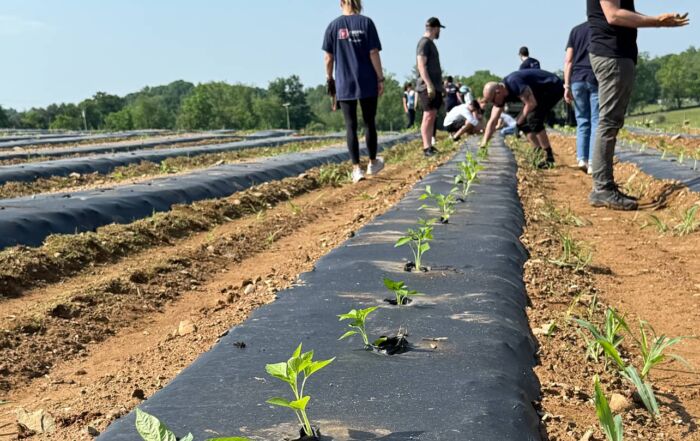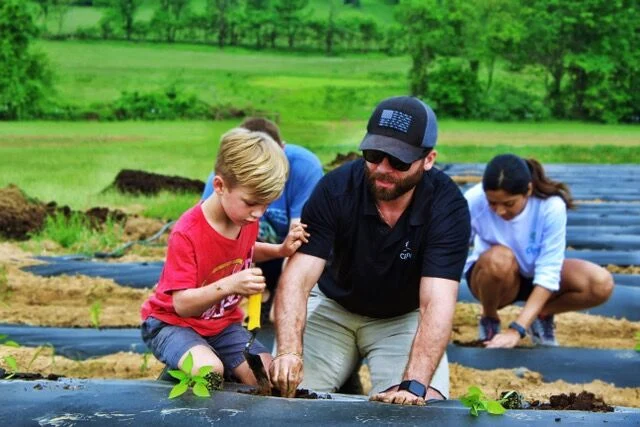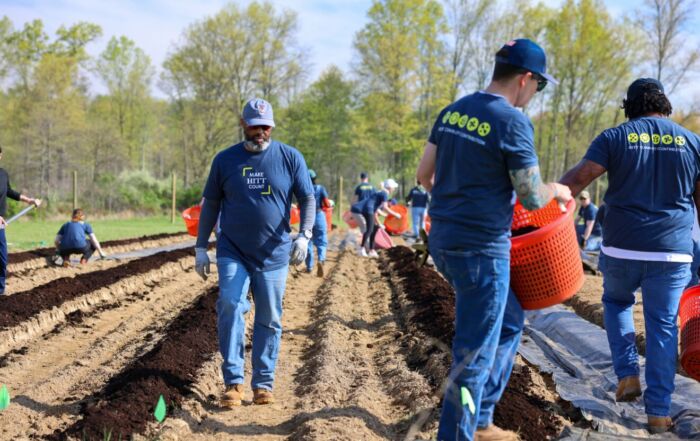
October 24, 2019
This week we were asked the question, “doesn’t organic just mean dirty?” No! But what is organic? And why are we so passionate about organic and locally grown food?
The fruits and vegetables we are consuming contain fewer nutrients than they ever have in the past due to farming techniques, and the amount of time it takes for our food to get from farm to table. Fresher food not only retains more nutrients, but it tastes better!
The term “organic” refers to the way that farmers grow and process their agricultural products. Organic farming utilizes natural fertilizers such as manure or compost (we love mushroom compost!). Natural pesticides and birds are used to reduce pests and disease, tilling and hand weeding are used to manage weeds. These organic farming techniques enhance our soil and water quality, reduce pollution, and promote a self sustaining cycle of resources on our farm.
Many of us are aware that centuries of intensive agriculture has depleted our soil. Organic farmers plant cover crops that prevent erosion when parcels of land are not in use to improve soil quality, resulting in more nutrient dense food.
In contrast, conventional non-organic farming utilizes synthetic fertilizers, chemical insecticides, and chemical herbicides to address the same obstacles faced by organic farms. These methods are known to increase their yields and decrease the workload. However, without the use of chemical pesticides and synthetic fertilizers, plants increase their production of phytochemical (vitamins and antioxidants) which naturally strengthen their resistance to bugs and weeds. People are often deterred by having to pay more money for organic produce, but it requires more time and labor to bring to market.
To answer the original question, fruits and vegetables are products of our environment so they may be a little dirty. Whether you eat entirely organic or mix in conventional foods, remember to wash your fresh fruits and vegetables thoroughly under running water. Washing helps remove dirt, bacteria and traces of chemicals from the surface of fruits and vegetables. Washing can help reduce contaminants, but it cannot remove all pesticides. Chemical pesticides are poisons, and they harm more than just the pests. They can cause a number go serious illnesses and diseases in humans, including cancer.
It is important to us that our community is not ingesting unnecessary and potentially harmful chemicals and preservatives, which is why we promote the consumption of organic and locally grown produce. Locally grown food helps you become more aware of what you’re putting into your body. It often retains more nutrients because it is able to ripen naturally.
The average produce item in your grocery cart has traveled 1,500- 2,500 miles. In order for produce to be ready for consumption after traveling such a great distance, it is being harvested prematurely and sprayed with preservatives. Premature harvesting interrupts the natural ripening process and limits the ability to develop its full nutrient potential. Even at optimal temperatures, stored produce loses its nutritional content. For example, lettuce loses 46% of its key nutrients after being stored for 7 days. It takes some produce weeks after harvest to make it to your table.
The benefits of eating organic and locally grown are clear to us and we hope to ensure equal access to nutritionally dense produce throughout our community.




